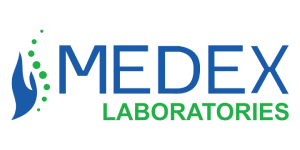Genetic Testing
Inherited disorders are found in approximately 5% of the world’s population or around 350 million people. To date, over 7,500 different genetic diseases have been identified, and 3,500 have a known molecular genetic background, with this number growing at an ever-increasing pace. Caring for these disorders accounts for approximately 17% of healthcare costs. Their impact on the lives of patients and their families is indisputable, while they also present some unique challenges for health care professionals. Although the number of these diseases is sizeable, many are so rare that they’re unknown to the vast maiority of clinicians. Iden- tifying those using conventional diagnostics is a process of trial and error that often yields no definitive answers. Anything we can do to improve and speed up diagnosis not only allows us to plan the best and most cost-effective treatments, but also plays an important part in patient comfort and long-term prognosis. This is where genetic testing can truly make a difference.
Why do genetic testing ?
As a clinician, genetic testing can help you: Diagnose diseases and/or their severity Improve your patient’s care by identifying the specific gene mutations that cause an already diagnosed disease Personalize your patient’s care by choosing the best treatments Identify mutations that may pose a risk for developing a disease, or could be passed on to children When a mutation is identified, you can make solid and accurate recommendations for your patient’s treatment and clinical monitoring, as well as advise them on lifestyle choices to improve their quality of life and longevity. Close relatives of affected patients can also be screened to determine if they are at risk of developing the disease, allowing you to plan preemptive measures to mitigate their risks, and perhaps even prevent the onset of the disease entirely. Moreover, identifying the specific gene mutation can have direct significance for the drugs used to treat the disease. In the case of mutations that inhibit the production of essential enzymes, for example, choosing medicines that compensate for the lack of these enzymes is critical. Drug dosages of any medication can also be tailored for an individual patient’s metabolism, as the technology exists to sequence genes for this purpose as well.
COMPREHENSIVE, RAPID, AND HIGH-QUALITY GENETIC DIAGNOSTICS SOLUTIONS
Medex Laboratories provides high coverage panels, high-resolution CNV detection, and comprehensive coverage of clinically relevant noncoding variants. Current state-of-the-art next-generation sequencing (NGS) technology enables rapid and cost-effective diagnostics of rare diseases. Many times genetic testing is the only solution to avoid a never-ending diagnostic odyssey. About 2% of the genome is actually encoding genes and only a subset of genes are known to be medically relevant. Medex Laboratories’ sequencing platform focuses on that portion of the genome that is clinically relevant, reducing the complexity of the sequencing process. With improved sequencing coverage and sensitivity to detect clinically relevant mutations, we can provide higher diagnostic yield.

